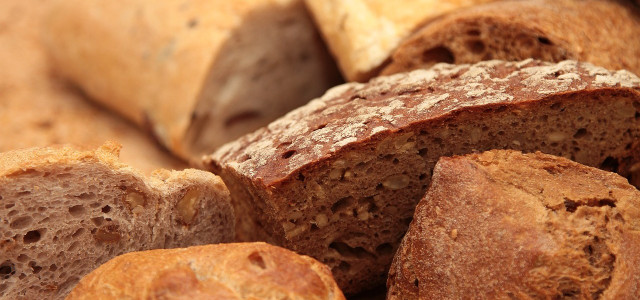Is white bread bad for you? Whole grains are healthier, but giving up white bread isn't always easy. Here are some reminders as to why it's better to avoid it.
Is white bread bad for you? High in calories and low in nutrients, white bread is definitely not the healthiest kind of bread out there. Luckily, the amount of whole-grain foods and gluten-free options on the market makes it easier than ever to avoid it. Here are 6 reasons to skip white bread and other food made with refined flour.
Refined Flour Vs. Whole Grain Flour
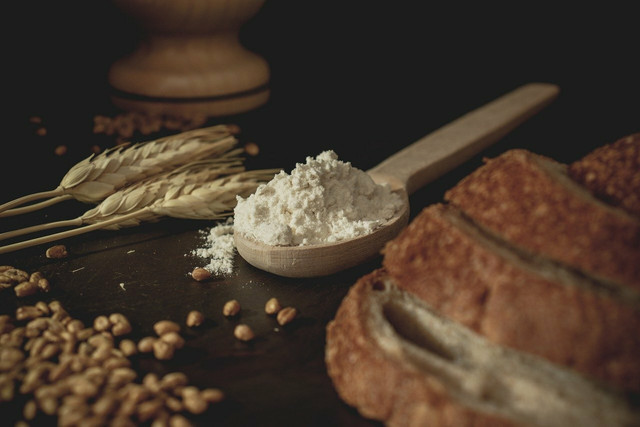
(Foto: CC0 / Pixabay / VugarAhmadov)
To understand why white bread is bad for you, it’s important to understand the difference between refined flour and whole wheat flour. White bread is made from wheat flour that has been refined to remove the bran and germ layers, producing a lighter-colored flour. Bread made with refined flour resultantly has lower fiber and nutrient content while still maintaining all the calories. Using refined flour is appealing because it results in bread that is light and fluffy because of its fine texture, but white bread lacks nutritional value and may have detrimental long-term health effects.
On the other hand, whole grain flour contains most of the original grain and so retains more nutrient and fiber content. This is just one of the many reasons whole-grain foods are recommended over foods made with refined flour like white bread.
Continue reading to find out some of the specific health effects that can occur with the regular consumption of white bread.
1. White Bread is Low in Nutrients
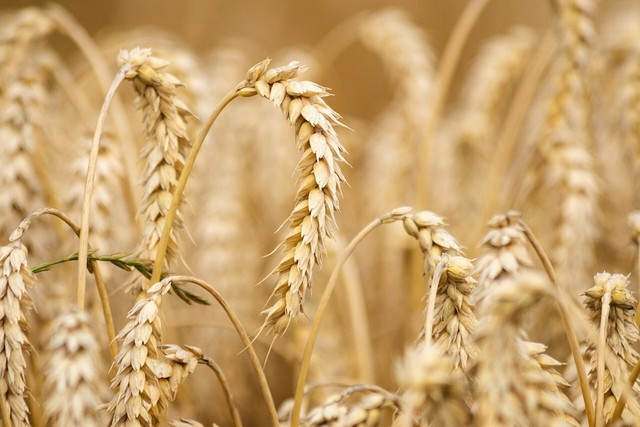


(Foto: CC0 / Pixabay / minka2507)
First and foremost, white bread is bad for you because it is much lower in nutrients than whole-grain bread. Refined wheat flour undergoes a milling process in which the wheat kernels are processed to manufacture the finest texture possible. As a result of the refining and bleaching process, refined wheat flour loses much of its nutritional content. It is lower in protein, fat, fiber (more on this later), vitamins, and minerals.
2. Bleaching
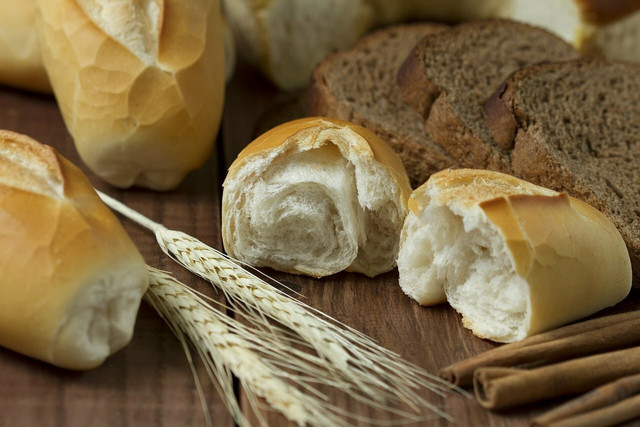


(Foto: CC0 / Pixabay / guanabarino)
To create a visually appealing white color, refined flour is usually bleached using chemicals like peroxides and chlorine. The bleaching process is considered to be safe, but the chemical bleaching agents remain in the flour after the process is over, and many people remain unconvinced that they have no negative long-term health impact.
Bleaching flour not only adds chemicals, but it also destroys nutrients. In an attempt to make up for this, many manufacturers “enrich” their flour with added vitamins and minerals.
3. Low Fiber
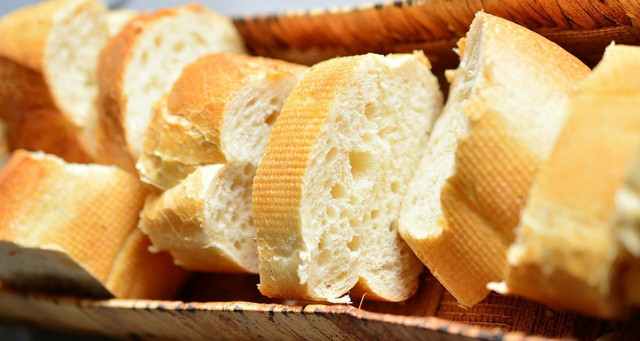


(Foto: CC0 / Pixabay / congerdesign)
The lack of fiber in white bread is also bad for you because it doesn’t give your digestive tract the support it needs.
Fiber is the part of plant-based foods that your body can’t digest, but your gut bacteria need it in order to produce essential short-chain fatty acids. This bacteria protects your body by supporting immune function, weight stability, metabolic homeostasis, blood sugar levels, and even brain function, so keeping them happy is an important part of a healthy diet.
4. Why is White Bread Bad for You? High in Calories and Carbohydrates



(Foto: CC0 / Pixabay / RitaE)
White bread can be considered bad for you especially if you struggle with consuming too many calories and carbohydrates. A single slice of white bread contains an average of 13 grams of carbohydrates. Diets high in carbs are associated with greater health risks like type 2 diabetes, metabolic syndrome, and increased heart disease.
Foods with a high glycemic index – such as white bread – are digested rapidly by your body. This leads to a risk of increased body weight because it means you feel hungry again more quickly, which means that you end up eating more in the long run. This rapid digestion also causes blood sugar spikes, which lead to feelings of hunger and lethargy and may increase your risk of developing type 2 diabetes.
Whole grain bread is the better option because it is higher in fiber, which slows the absorption of sugar in your bloodstream and makes you feel fuller for longer.
5. Contains Gluten



(Foto: CC0 / Pixabay / congerdesign)
White bread is certain to be bad for you and difficult to digest if you have an autoimmune disorder or sensitivity to gluten. All wheat products contain gluten, a type of protein that helps give bread its elastic texture. While most people can digest gluten, it can cause real problems for others.
For those with autoimmune disorders such as Crohn’s disease or Celiac disease, gluten damages the lining of the small intestine and impairs nutrient absorption. For others with sensitivity to gluten, consumption may cause less severe health issues such as bloating, diarrhea, stomach pain, and lethargy.
People with autoimmune diseases or gluten sensitivity should avoid all wheat products completely. There are a growing number of gluten-free bread alternatives made from other grains and plants such as tapioca, brown rice, potato flours, and flours made from nuts and seeds. These are also generally more nutrient-rich, high in fiber, and will not be so tough on the digestive tract for anyone with gluten sensitivities.
Problems with lethargy? Check out: Afternoon Fatigue: 6 Ways to Beat a Midday Slump .
When White Bread May Make Sense
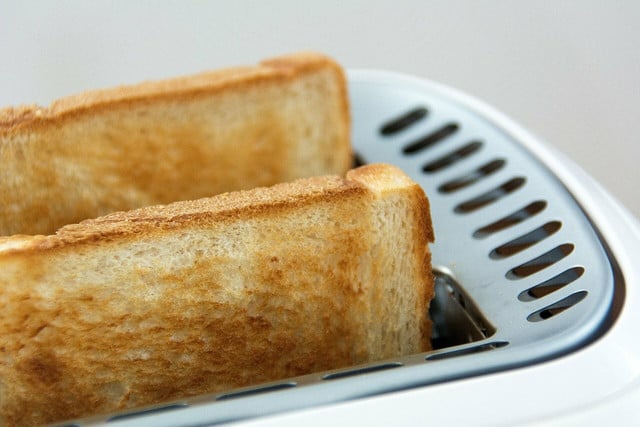


(Foto: CC0 / Pixabay / CordMediaStuttgart)
While there are enough ways in which white bread is bad for you, there are certain situations in which it might do you some good. For example, if you are having digestive issues, it is usually not good to consume foods high in fiber. This is when white bread may come in handy.
If you’re experiencing digestive issues such as food poisoning, abdominal pain or cramps, diarrhea, nausea, bloating, or vomiting, white bread may help give your gut a much-needed rest.
Can’t eat white bread? Check out this list of more easy to digest foods.
Read More:
- Benefits of Green Juice: Is It Good For You?
- Fasting One Day a Week: Benefits of Regular Fasting
- Gluten-Free, Yeast-Free Bread: A Life-Changing Recipe
Important Information regarding Health-related Topics.
** Links to retailers marked with ** or underlined orange are partially partner links: If you buy here, you actively support Utopia.org, because we will receive a small part of the sales proceeds. More info.Do you like this post?







